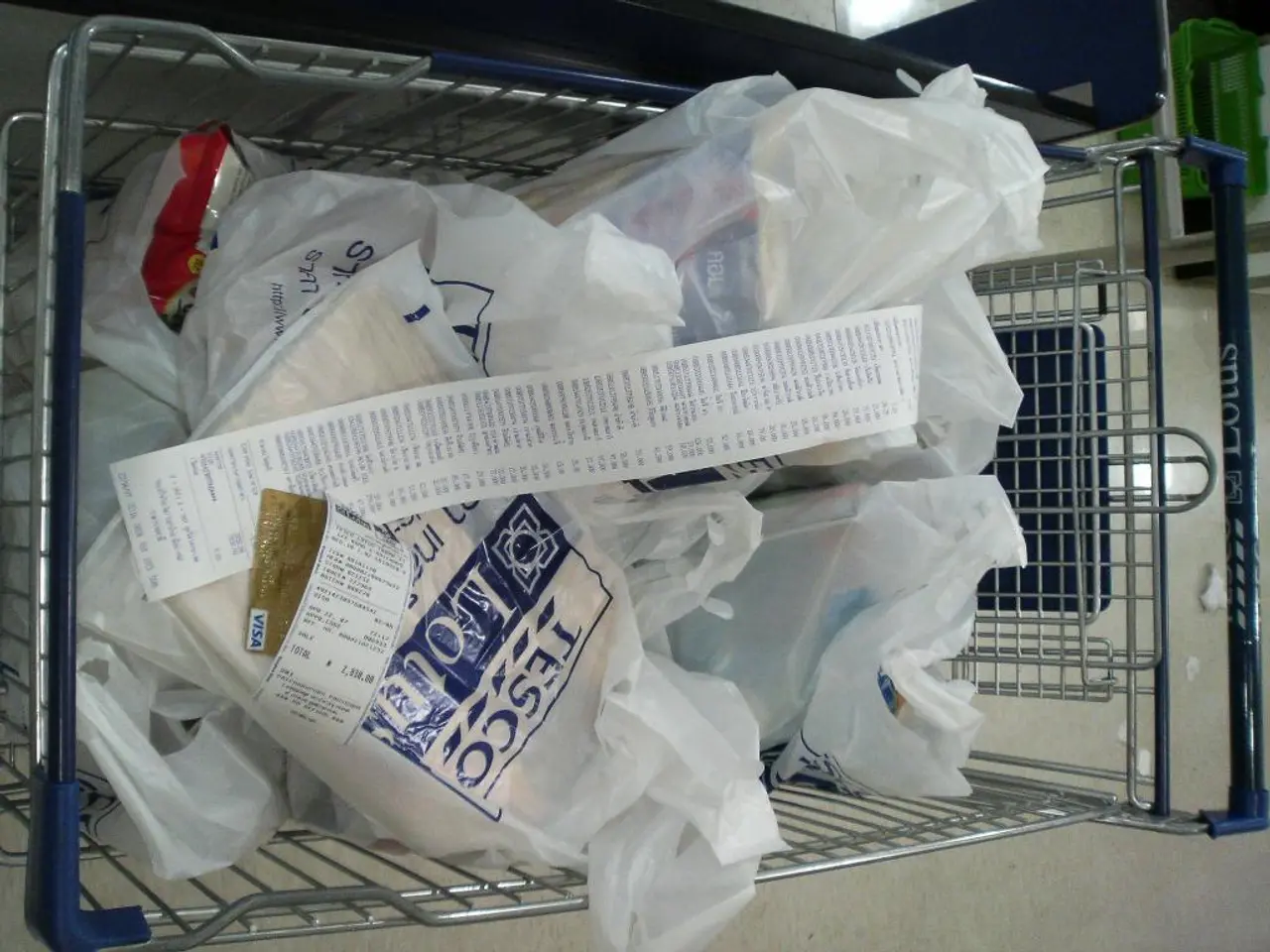Households in Germany express anxieties over their financial condition
In the wake of two consecutive years of recession, Germany's consumer credit landscape is demonstrating nuanced trends compared to the broader European environment. A recent study commissioned by CRIF, conducted by Opinium Research, has shed light on these shifts in financial habits among German citizens.
The study reveals that the economic situation in Germany has led to an increase in the use of credit to manage finances, with people opting for flexible payment options more often. One such option gaining traction is the "Buy now, pay later" (BNPL) payment method, with 20% of people in Germany now using it, nearly doubling the European average of 11%.
Consumer credit originations in Germany have increased year-over-year in several lending categories, aligning with broader European patterns of recovering credit demand. However, credit card products have seen a decline in originations, indicating more cautious use of revolving credit among consumers. Outstanding mortgage and revolving consumer debt continue to rise year-over-year, though non-revolving debt growth, including personal loans and auto loans, is slowing.
Mortgage delinquencies in Germany have increased year-over-year, a sign of some financial stress following the recession. Nevertheless, delinquencies on auto loans, bank cards, private label cards, and personal loans have improved, suggesting selective resilience in certain credit segments.
Age and income affect financial resilience in Germany, with older consumers tending to exhibit more financial stability due to accumulated savings and equity. Compared to the European average, Germany, along with Italy and France, has undergone deleveraging since the recession, reducing credit risk exposure.
Consumer confidence in Germany remains low but stable, with indices around -20 points in mid-2025, indicating subdued consumer sentiment likely influencing credit behaviors and cautious borrowing. Inflation has eased in Germany, falling to around 2.0% in June 2025, which could positively affect consumers’ capacity to manage credit and deferred payments, such as those in BNPL schemes.
The study also indicates that more than half of people in Germany (51%) took on a new line of credit last year, and more than a quarter (26%) have applied for a new credit card. These findings suggest a shift in consumer behavior towards seeking flexible and manageable payment options.
In summary, Germany's consumer credit landscape post-recession reflects a cautious but recovering environment, with increased originations except for credit cards, rising mortgage debt but elevated delinquency rates, and a general trend toward deleveraging compared to some European peers. BNPL trends likely follow broader European patterns of selective growth but with no specific Germany-focused data available in the current sources.
- The increase in consumer credit originations in Germany, particularly in non-revolving debt categories like personal loans and auto loans, aligns with a shift in personal-finance habits towards more manageable payment options.
- The growth in usage of the "Buy now, pay later" (BNPL) payment method among German citizens, with 20% now using it, signals a trend in business finance where people are opting for flexible payment alternatives to manage their personal-finance situations.




